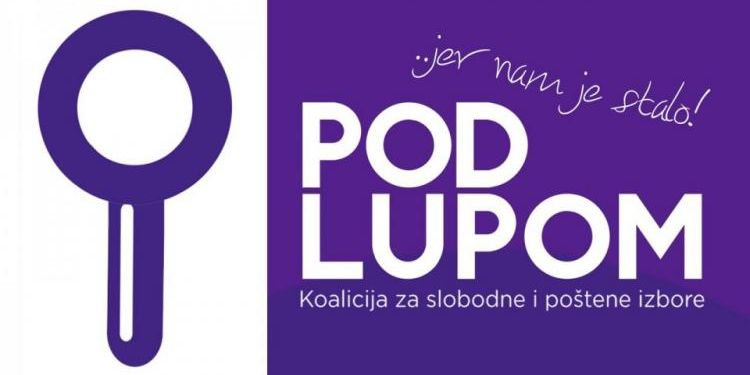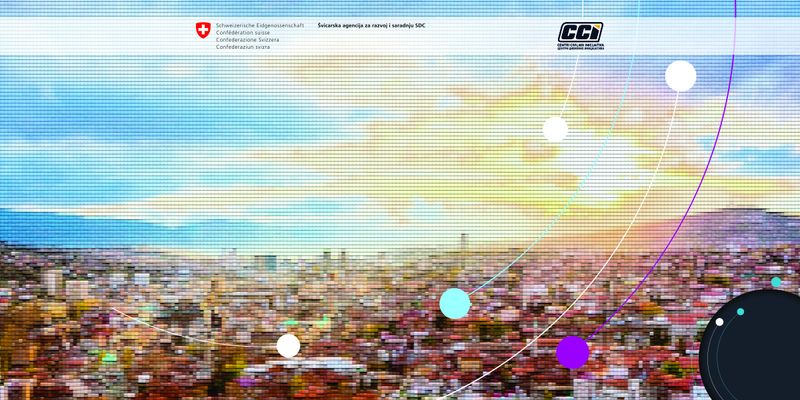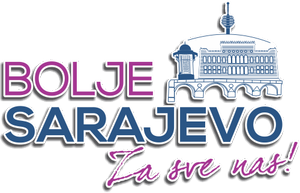


'Virtual Parliament' - a new tool designed for better communication of the citizens and government representatives has been presented to the public. 'Virtual parliament' (http://www.virtuelniparlament.ba/) is an on-line platform which contains more than 600 virtual offices of MPs and delegates and the parliament halls of all three levels of authorities in BiH. This is an innovative tool, unique by its structure, that enables the citizens to simply get in touch with each representative of the legislative authorities in BiH and be involved in the decision-making process. In this way BH citizens got an opportunity to insist on the results and the responsibility of elected representatives and on MPs' obligations. The promotion was attended by the parliament members of all authority levels in BiH, the US ambassador in BiH, H.E. Patrick Moon as well as the representatives of civil society organizations and media in BiH. The author of this on-line application, which was supported by USAID, is CCI. You can see a brief presentation of 'Virtual Parliament' here (http://inicijativa.tv/). More...
'Virtual Parliament' gives an opportunity to all parliament members throughout BiH to show their interest and readiness to directly communicate with the citizens, through their virtual offices. On the other hand, this is an opportunity for the citizens to have an insight in the work of MPs and to have direct communication with them. 'Virtual Parliament' is a place where citizens can communicate with the representatives of legislative authorities, by directly asking questions, chatting, sending e-mails, blogging, starting an initiative, participating in thematic debates, etc.
Navigation through this program is very simple. The users of this tool can move like in the government institutions, through individual MPs' and delegates' offices. The purpose of this tool is to enable the citizens and government representatives to get closer to each other and start working on solving the problems of BH society. CCI believes that this form of communication will encourage the citizens, who will be more informed, to be more active and more demanding in the political life of their community, which can only result in more efficient, more transparent and responsible work of the authorities.
During the promotion in Sarajevo, on 16 November, the representatives of the parliaments who participated in the conference were given the 'Keys to the Virtual Parliament' as a symbol of opening the door of responsibility.
You can see a brief presentation of 'Virtual Parliament' here or here.
The activities related to issuing the regulations for governing the production, trade and import of plastic bags in BiH enter the final stage. One of the expected results includes the approval of the Regulation on the Fee for Plastic Bags by entities' governments, at CCI's proposal, through the ministries in charge of the environment field. In the meeting of the relevant ministries, NGOs and the plastic bag producers a fierce debate took place. These activities are carried out within the project 'Decreasing the Use of Plastic Bags in BiH“ financially supported by the European Commission. More...
On 10 September 2012, a large meeting was organized on the premises of RS Ministry of Spatial Planning, Construction and Ecology, in Banja Luka, with the representatives of plastic bag producers in BiH, representatives of the funds for environment protection and the relevant ministries of both entities – RS Ministry of Spatial Planning, Construction and Ecology, RS Ministry of Trade and Tourism, the Federal Ministry of the Environment and Tourism and the Federal Ministry of Trade. The meeting was in a form of a public hearing, organized with an aim to hear the producers' opinions about the working material that will be a basis for government regulations on the fees for thin plastic bags. The presented working material included the fee at the level of the producer, in the amount of 0,05 KM per piece of plastic bag thinner than 20 microns. This was the main 'stumbling block' in the discussion with the producers, who supported the opinion that they were not polluters in the whole chain; they thought that the fee level defined per piece rather than per ton of plastic bags was unacceptable. At the same time, there were no concrete proposals on their end as to how to solve the problem, and the only suggestions concerned subsidizing processing (recycling) of plastic by domestic business subjects, investment in sorting the waste, raising the level of awareness among the citizens (especially children) about the importance of protection of the environment, through eco-education in schools. Although the proposed working material included another regulation that envisaged that the funds collected from the fee would be allocated to the producers and their eco-friendly projects, that was not enough for the participants to agree on the level of the fee and its collection at the level of the producers and importers. Some suggestions were aiming at shops as the real address for collection of the fees for plastic bags, with the main argument that the shops are the ones that distribute the plastic bags to the citizens in an uncontrolled manner, and further to the environment.
All parties agree on the fact that plastic bags are a big problem in the country and that finding a better solution will require the engagement of all parties. An enforceable regulation is necessary to discourage the production of thin plastic bags and encourage the production (and thereby the use) of thicker/higher quality plastic bags for multiple use. In that way, we will have a situation where the citizens will start using the means for packing and carrying the items they buy in a more rational way, while as a final benefit, we will have the environment free of discarded thin plastic bags. At the same time, thicker plastic bags are both more suitable and more economical in terms of collection and recycling, as their weight is much higher.
In the meantime, CCI improved the draft versions of the regulation on the fee for plastic bags and forwarded them to the ministries in 2 versions, this time with an option of payment of the fee at the level of wholesaler. The harmonization of the regulations by the entities' ministries is expected to take place by the end of November. In parallel, the activities will be undertaken towards the citizens, through a series of promotional stands in bigger towns, distribution of educational materials and cloth-made bags, where the citizens will be invited to give their support to enacting of regulations and to change their habits in using the plastic bags as well as their attitude toward the environment.
CCI started an initiative for the amendment of the entities' laws governing the work of local communities. The initiative relates to the entities' laws on administration and local self-governance. As part of the project ' New Local Communities', on the basis of the analyses and surveys, and with the help of legal experts, CCI identified the ways to promote the work of the local communities in BiH. The goal of this initiative is to ensure higher participation of citizens in decision-making processes at the local level. These activities were supported by the delegation of the European Commission in BiH. More...
Based on the analyses and researches undertaken, and with the help of the legal experts in the field of local self-governance, as well as in a broader public hearing with our collaborators and representatives of LCs and municipalities, we identified certain initial solutions that would help improve the work of LCs in a system manner, with an emphasis on citizens’ participation in the process of making local decisions. Special emphasis was placed on the election of the leadership of the local communities, and participation of citizens through local communities in making crucial decisions in municipalities, such as approval of the municipal budget, and in the fields of planning, education, developing projects, informing and reporting between the municipality, local communities and citizens. The goal of the above initiatives is to make LCs more functional institutions that the citizens could use for exactly those purposes for which they were established.
Having finalized the initiative for the amendments of the entities’ laws, as well as the initiative for amending the municipal by-laws, during October we forwarded them to the relevant institutions, as well as to 10 municipalities in BiH, to the end of amending the laws on local self-governance, the principles of local self-governance, as well as for the amendments of Municipal by-laws. The initiative includes concrete proposals that relate to strengthening the mechanisms of citizens’ participation in the processes of making local decisions through Local Communities. The links to proposals for amendments of the entities’ laws and municipal by-laws are the following:
http://www.novamz.ba/data/uploads/dokumenta/inicijativa-za-izmjene-i-dopune-zakona-o-principima-lokalne-samouprave-fbih.pdf
http://www.novamz.ba/data/uploads/dokumenta/inicijativa-za-izmjene-i-dopune-zakona-o-lokalnoj-samoupravi-rs.pdf
http://www.novamz.ba/data/uploads/dokumenta/inicijativa-za-izmjene-i-dopune-statuta-opcine-fbih-finalna.pdf
http://www.novamz.ba/data/uploads/dokumenta/inicijativa-za-izmjene-i-dopune-statuta-opstina-rs.pdf

Inicijativa TV - an Internet TV launched by CCI. Incijativa TV www.inicijativa.tv/ broadcasts the contents aimed at educating BH public on the problems of Bosnia and Herzegovina society and citizens, and at promoting the understanding of the work of civil society organizations in BiH. One of the goals is to contribute to the building of partnership between citizens, non-governmental organizations and authorities in their efforts to find solutions to different problems in the society. More...
The program contents includes different forms of documentary material such as documentary films, stories, interview, research projects, thematic serials, educational programs, etc.
Part of the program is produced by CCI's by its own resources, while the rest of the program includes the broadcasts of other non-governmental organizations from BiH and the region, as well as public broadcasters from the world and programs of different authors.


Anticorruption training for teachers was held in Tuzla. Centers for civic initiatives (CCI) continued their campaign activities on the implementation of the provisions of the Anti-corruption strategy from 2009 to 2014, and the associating Action Plan relating to the education sector. These activities are part of CAPP II and financially supported by USAID: More…
In agreement with the Ministry of Education, Science, Culture and Sports of TK and cantonal Pedagogical Institute, on the 23th of November in Tuzla, a large education for teachers was held, in the field of ethics and anti-corruption. Teachers from all secondary schools in the area of TK passed a short training and got practical advices, with suggestions for the content and methods of education of students in that field. The lecture was attended by more than 80 teachers divided into two groups. CCI provided educational materials in written and electronic form for all participants.
Teachers agreed that the education of the student population in the area of ethics and the anti- corruption is one of the possible ways to prevent negative occurrences. In the future, on homeroom classes, and through regular social subjects, teachers will hold periodic lectures on these topics for high school students.

CCI launch three new projects. With the support of the Dutch Embassy in BiH, a project „Budget“ was launched, the goal of which is the advocacy of improvement of the budget policies in BiH, with a special focus on raising the level of transparency of the budgeting process, and higher participation of the public in designing the budget at all levels of the authority. More...
Balkan Trust for Democracy supports the project „Share Your Luck“. CCI will work on the improvement of the legislation governing the games of chance in FBiH, in order to collect more revenue on this basis, and, more importantly, use these funds for financing humanitarian, social and similar program of SCOs.
With the support of the Council of Europe, CCI will implement the project: "Political spectrum: Researching the ideological profile of voters and the leading political parties in Bosnia and Herzegovina". As part of this project, CCI will conduct a comprehensive, multi-method research of the political spectrum in BiH, which implies carrying out opinion polls, interviewing political parties and a broad analysis of election results in the last 4 election cycles.


In September 2012. CCI launched web page www.lokalnauprava.ba, with basic idea to aggregate most significant election campaign promises, collected during local elections 2012 campaign in 14 target cities and municipalities within project „Local administration for the quality of life of citizens – phase 2“, financed by EU. More...
The concept of webpage (www.lokalnauprava.ba) is designed to provide access in user-friendly manner, to candidates for mayors in target municipalities: their bios with photo, pre-election programmes and promises given during election campaign. After taking Elections 2012 tab, using interactive map of BiH, visitor can click to specific municipality, and go to one of three listed group of information for each municipality and its mayor candidates. Election promises were extracted from different campaign public events, media announcements, and interviews with candidates. Idea was to extract basic simple promises from long and general speeches and interviews, to make it simpler, more understandable for citizens, and easier to monitor after the elections. Same approach was used for all of the candidates, but most significant were promises given by the candidates with biggest chance to win, from simple reason: their campaign was more active and visible, supported with their political party machinery. Also, lower-profile mayor candidates sometimes did not even develop specific written programmes, nor commercial TV addressing, due to more limited budget. In contrast, candidates with high chances to win were very careful in giving concrete promises, while lower-profile candidates were more precise and concrete with their “activity agenda” in case they win the office. Campaign itself, was basically boring and non-innovative, with already seen campaign tools, based on “posters and billboards” and “roads and street lights”, making public events with music and food, but without concrete action plans and ideas how to improve the quality of life of citizens in the future. Forthcoming period will be use for monitoring of implementation of election promises given by candidates who won the race for the mayor’s office. It will be very interesting to see the level of implementation of election promises one year after taking a seat. Besides published web page, this issue will be a topic for the public events and other activities during 2013. Idea is to push the citizens to make their elected representatives accountable for the words given. Samples from the past shows that citizen’s memory regarding politician promises sometimes is very short and needs to be supported by this kind of monitoring.
Besides election campaign promises, published web page gives overview of other project activities, like accountability forums, campaigns, budget focus groups and other activities and events. Previous accountability forums can be seen at video section, and will be good point to remind citizens on mayors’ action plans from the past, to see which issues were really implemented for the period of one year. Web page will be available for several partner NGOs from target municipalities, which are implementing campaigns related to specific segments of quality of life of citizens. The web page registered high number of visits, especially during the election campaign, but also 3 attacks from anonymous bodies. In future, CCI team will continue to upgrade this page, presenting all activities to public up to date, but also emphasizing implementation of election promises in specific municipalities.



















